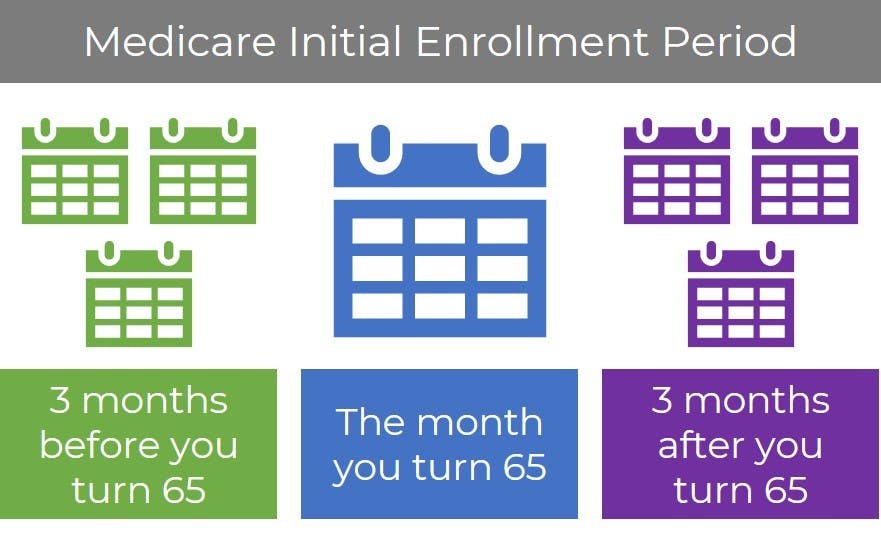
The whims of government mean that Medicare changes every year.
The Medicare program changes at least a little bit every year. Rates go up, the Centers for Medicare & Medicaid Services (CMS) passes new rules, legislation takes effect. And even though we're still a few months out, we already know at least a few Medicare changes in 2021.
The 2021 Medicare Budget
The COVID-19 pandemic has caused massive upheaval throughout the country. One impact from that ripple effect is the federal budget. We still don't have one.
President Trump's proposed 2021 budget includes a 7 percent decrease in Medicare spending by the year 2030. Part of that decrease is expected to come about because of anti-fraud measures CMS has enacted. Another part is that the government plans to reduce the payment rates for Medicare providers, which means changes to the physician fee schedule in calendar year (CY) 2021. Rate cuts of 7 percent include social workers, psychologists, and physical therapists. Physicians will see an 8 percent reduction. Most experts worry these payment reductions will lead to fewer providers accepting Medicare.
The budget also predicts costs will go down thanks to program changes, such as allowing Medicare beneficiaries to choose a nurse practitioner as their primary care provider.
Right now, though, the biggest policy change that may affect Medicare is Trump's executive order of August 8, 2020. As part of the response to the Coronavirus, Trump proposes deferring the payroll tax for the remainder of the year. Red flags flew as a result of this announcement, since payroll taxes are how we fund Medicare and Social Security.
The important note on this executive order is that it's a deferment. Workers still owe those taxes and will have to pay them when it's time to file their state and federal taxes for 2020. That essentially means that the government is loaning you your own money, and that loan will come due on April 15.
How Much Will Medicare Cost in 2021?
Your out-of-pocket costs for Original Medicare are as follows:

Medicare Advantage Changes in 2021
Although private insurance companies provide Advantage plans, the Centers for Medicare & Medicaid Services sets guidelines, which may change every year.
One 2021 change began in 2020, as a response to the COVID-19 public health emergency: the expansion of telehealth services. This is making it possible for Medicare beneficiaries to see their doctor remotely when applicable. This is especially valuable for people who live in rural areas or have restricted access to healthcare providers.
One way that telehealth services are expanding in 2021 is in the specialty providers CMS will allow Advantage plan members to "visit" remotely. The list includes but is not limited to:
- Cardiologists
- Dermatologists
- Endocrinologists
- Gynecologists
- Primary care providers
- Psychiatrists
Expanding Medicare coverage for telehealth services means safer treatment for everybody.
What's the 21st Century Cures Act?
Congress passed the 21st Century Cures Act in December of 2016. Like most bills, the law has numerous provisions affecting many areas, including the Food & Drug Administration (FDA), National Institutes of Health (NIH), Social Security, and Medicare.
Thanks to the 21st Century Cures Act, Medicare Advantage coverage is expanding for beneficiaries who have end-stage renal disease (ESRD). Previously, if you had ESRD and qualified for Medicare, you could only join an Advantage plan if you met certain qualifications. As of 2021, all ESRD beneficiaries may join a Medicare Advantage plan.
A related change is who is responsible for the "organ acquisition costs" for a kidney transplant. CMS moved these costs from MA plan providers to the fee-for-service program.
Medicare Drug Costs in 2021
Another part of President Trump's budget reduction is comprehensive reform for prescription drug pricing. The first medication that's seen a significant reduction in cost is insulin. In 2021, Medicare beneficiaries who have diabetes have a maximum copay of $35 per month for insulin. Again, we will update this page as more information becomes available.
Important Medicare Dates in 2021
Medicare has specific enrollment periods that occur every year.
- The Medicare Annual Enrollment Period (AEP) starts on October 15 and ends on December 7. During this time, current Medicare beneficiaries may make any necessary changes to their coverage.
- The Medicare Advantage Open Enrollment Period (OEP) runs from January 1 through March 31. It is only available to current Medicare Advantage plan enrollees. During this time, you may either switch to a different MA plan or return to Original Medicare. However, if making that change means you lose your prescription drug coverage, you may also sign up for a Medicare Part D plan.
- General Enrollment occurs every year from January 1 through March 31. It is for anyone who qualifies for but is not enrolled in Medicare Part A and/or Medicare Part B. Once you have Parts A and B, you then have from April 1 through June 30 to sign up for Medicare Part C (i.e. a Medicare Advantage plan) and/or Medicare Part D. All coverage choices take effect on July 1.
- The 5-Star Special Enrollment Period (SEP) runs from December 8 through November 30. Basically, you have most of the year to switch to a 5-star Medicare plan if one becomes available in your area. You can only use this SEP once per year.
If you're turning 65 in 2021, the most important Medicare date for you is your birthday, since this marks the date you become eligible for Medicare. It also determines your Initial Enrollment Period (IEP), which begins 3 months before your birth month and lasts a full 7 months. It looks like this:

If you began collecting Social Security benefits at least 4 months before your 65th birthday, Medicare enrollment is automatic. Everyone else needs to choose to sign up for Medicare.
Medicare Plan Star Ratings in 2021
Every fall, the Centers for Medicare & Medicaid Services releases their Medicare plan ratings. The timing is intentional, as it precedes the Annual Enrollment Period, allowing beneficiaries to easily compare their Medicare plan options.
This is another area where the pandemic had an impact. CMS plans to use 2019 and 2020 data to create the 2021 Star Ratings.
Our Find a Plan tool makes comparing your options easy. Just enter your location and coverage start date to review Medicare plans in your area.
Additional resources
H.R.34 - 21st Century Cures Act
External Website Link
Medicare Costs At a Glance
External Website Link
Medicare 101: Understanding the Basics of Medicare
Internal Website Link



